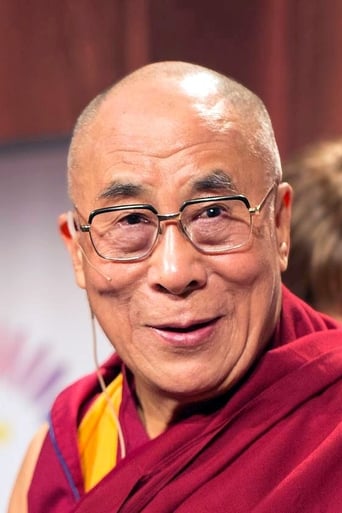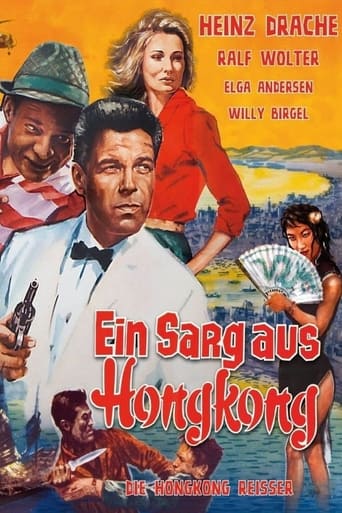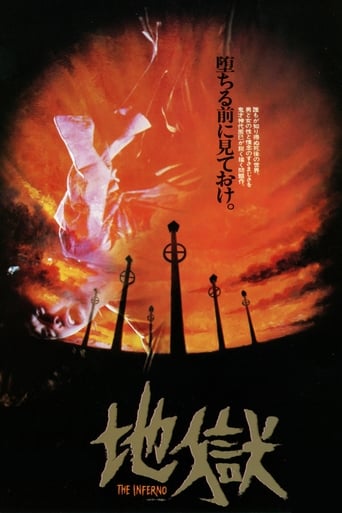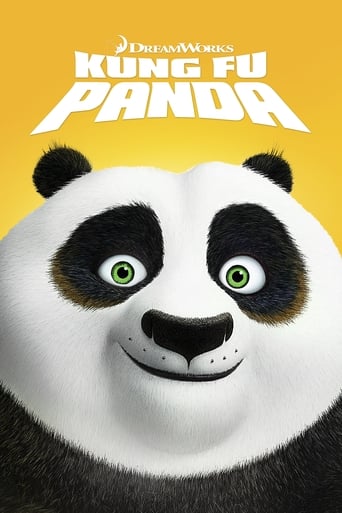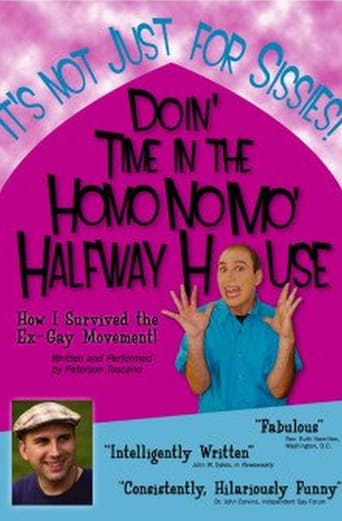
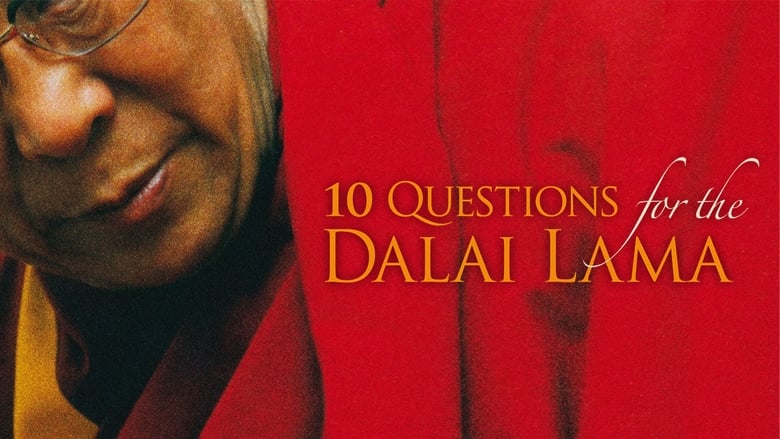
10 Questions for the Dalai Lama (2006)
How do you reconcile a commitment to non-violence when faced with violence? Why do the poor often seem happier than the rich? Must a society lose its traditions in order to move into the future? These are some of the questions posed to His Holiness the Dalai Lama by filmmaker and explorer Rick Ray. Ray examines some of the fundamental questions of our time by weaving together observations from his own journeys throughout India and the Middle East, and the wisdom of an extraordinary spiritual leader. This is his story, as told and filmed by Rick Ray during a private visit to his monastery in Dharamsala, India over the course of several months. Also included is rare historical footage as well as footage supplied by individuals who at great personal risk, filmed with hidden cameras within Tibet.
Watch Trailer
Cast
Similar titles
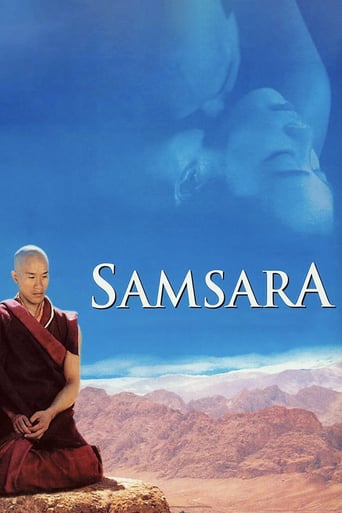
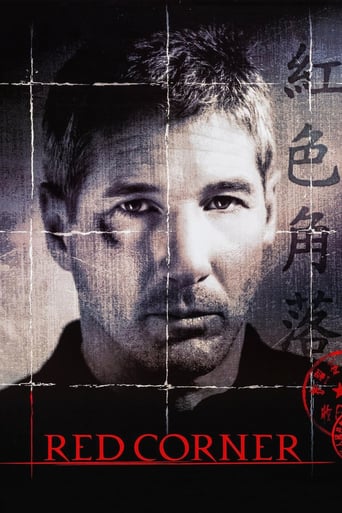
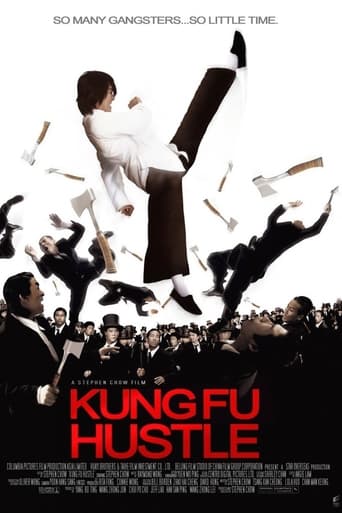

Reviews
So much average
Simple and well acted, it has tension enough to knot the stomach.
There's no way I can possibly love it entirely but I just think its ridiculously bad, but enjoyable at the same time.
All of these films share one commonality, that being a kind of emotional center that humanizes a cast of monsters.
Documentary filmmaker Rick Ray was given forty-five minutes, and a limit of ten questions, with His Holiness the 14th Dalai Lama of Tibet.Instead of going the safe route of simply filming the interview, Ray does a brief recap of the tumultuous life of the religious leader, helpfully comparing his stature among his people as equal to Jesus Christ residing in the White House. The Dalai Lama is currently in exile in northern India, and to prepare for the interview, Ray immerses himself in the Buddhist experience, travelling across the country and encountering the poorest citizens along the way. China has been brutal to the country of Tibet in the past few decades after invading and conquering it with little resistance, eventually turning it into a cheesy tourist attraction for its people, and one question that is bothering Ray is "when is non-violence no longer an option?"By the time Ray sits down for the interview, he decides to cover many other wide-ranging topics: why do the poor seem happier than the rich, how important is the preservation of culture and religion, what can a Far East Buddhist leader do about the tumult in the Middle East, and the Dalai Lama's similarities to another pacifist- India's Gandhi.The Dalai Lama is a very soft-spoken and intelligent man, answering the questions without condescending to Ray. I like that in the face of the evils of the Khmer Rouge, or Hitler, you can practice non-violence but still protect oneself from immediate physical threat. You don't have to be a pushover. Likewise when dealing with China. The Dalai Lama says to engage the Chinese, not isolate them. He saw first-hand what the overpopulated country is capable of when dealing with his former country. As in politics, some religious people suffer from selfishness, which can taint one's outlook on the world. He also mentions overpopulation, preferring quality of life to quantity. He would know, dealing with two of the most populous nations on the planet.Technically, Ray gets great use out of archive footage, and sometimes shows the Dalai Lama in a less than favorable light. He doesn't trash the leader, but he does mention the initial capitulation to China, and even some trivial facts (like how the Dalai Lama doesn't like festivals that center around and praise him). Ray has made a few documentaries from different locales in the world, and this experience helps this film. It is more than a filmed audience, and thankfully more than a breathless sanitized travelogue. Not enumerating the questions and walking the viewer through them helps, letting the Dalai Lama get his points across uninterrupted. I also liked the honesty of the Lama's personal secretary."10 Questions for the Dalai Lama" is a fresh look at a subject who has been covered by too many basic cable television biography shows in the past. If it makes the viewer want to know more about the man and the religion, then I think it has done its job.
The 10 Questions for the Dali Lama by Rick Ray: In the movie, Rick Ray has set up an interview with Tenzin Gyatso, the fourteenth Dali Lama. Before the interview, Rick Ray has a lot of time to discover the land that the Dali Lama grew up in and ruled, Tibet. The Chinese have always had a rivalry with Tibet because they think they own the land, even though the Tibetans disagree. This movie shows the rich history behind the silly laugh of the Dali Lama. The Dali Lama will tolerate no violence in his name and just wishes to remain in a remote area, where everything concentrates on spiritual practice. Rick Ray asks the Dali Lama only 10 questions and discovers why the Dali Lama deserved the famous Noble Peace Prize. While watching this movie, I enjoyed the marvelous quality of the facts about the 14 Dali Lamas, and the war between the Chinese and Tibet. I definitely understand the point of the war now, and also hold a grudge against China. Even though some of Tibet's traditions have been taken out, it was very interesting to watch the ones that still live on to this day. Although the content was very rich, I found the filming quality of the movie, especially in the interview, was very poor and not professional. The sound quality was also not very good, and some scenes in the movie were quite dull. Overall, it was very informative and would recommend it for anyone wanting to learn about Tibet's History and the Dali Lama.
In "10 Questions for the Dalai Lama," documentary filmmaker Rick Ray journeys to Dharamsala in northern India to speak with the man he describes as both a "humble Buddhist monk" and a "rock star of peace," and who is believed by many to be the reincarnation of Buddha here on earth (though the Dalai Lama himself denies this, insisting that he is a mere mortal like everyone else).You don't have to be a believer or even a particularly spiritual person to be moved and inspired by this film, which provides us with a rare up-close-and-personal look at one of the key religious figures in the world today. What comes out both in the interview and in the various glimpses we are given of him in his meetings with many of the world's movers and shakers in government and religion, is just what a fun-loving, down-to-earth, and self-effacing a man he truly is, even though he is never shy about confronting injustice whenever or wherever it rears its ugly head. Much of that feistiness derives, of course, from his own experience of having to flee his native Tibet in the early 1950's when the Communist Chinese invaded that country, and then being forced to live as an exile in a foreign land ever since.To a disinterested observer, the Dalai Lama may seem, in many ways, to be a walking contradiction; an advocate for the ancient art of transcendence through meditation, he is also a passionate devotee of science and a champion of modern technology (his monks are very "hep" to the internet, and he, himself, is well-versed in quantum physics and neuroscience). In fact, if there is disagreement between science and religion, he will generally come down on the side of science. Fiercely ecumenical and tolerant of the beliefs of others, he's quick to point out the flaws in his own traditional beliefs when they conflict with the more enlightened ways of the modern world (the elimination of the caste system, equality for women etc.). The Dalai Lama comes across as a man ruled as much by the practical concerns of having to exist in a highly diverse, multicultural world as by his obviously innate love for humanity itself.But it is when confronted with the question of how to respond to evil in the world that this man shows what he is truly made of. A passionate believer in civil disobedience (like Jesus, Gandhi and Martin Luther King before him), the Dalai Lama stays true to his principles by not calling for violent action even against his own people's oppressors, the Chinese. He still believes, all these years later, that more can be gained by engaging on a personal level with one's enemy than by fighting them. That's a bit tough for us in the West to understand, especially when the film shows us the terrible suffering and injustice the Tibetan people have endured under Communist rule. Yet, when you hear him speak, it's impossible not to be convinced by the depth of his wisdom and the force of his moral character.Going beyond the conversation itself, Ray provides fascinating background information on the history of Buddhism, the invasion of Tibet, and the biographical details of the Dalai Lama himself, including how he was chosen for this exalted position, how he spent his childhood, how he fled the invaders when still a teen, and how he has dedicated his life since to fighting, through nonviolent means, for the restoration of Tibet to its rightful people.Filled with exquisite vistas and beautiful images of nature, Ray's film is a passionate cry for justice as well as a finely-wrought, contemplative vision of a leader who calls upon the better angels in all of us to help make this world a more peaceful place both for ourselves and those who will come after us.
I'm giving this movie 5 stars just for its informational value. I did learn a lot about the Tibetans' struggle for freedom under Chinese oppression, and there was some fascinating archival footage. Also, it gets some points for the overly prepped and belabored, but finally interesting scenes where the Dalai Lama actually talks.However, the overall tone of the film annoyed me. Because of the way the voice-overs are done, the Dalai Lama is presented in a disrespectful way.It is a well-known fact that the Dalai Lama is a refreshing, fun-loving person who likes to laugh. But here we are treated to a montage where he is semi-mocked for proposing festivals for world peace, followed by the his assistant's informing us that he doesn't even like festivals himself and often falls asleep during them (is the assistant accusing him of hypocrisy - proposing something he himself hates?), all over top of video where he seems to be thoroughly enjoying himself at festivals. Which is the truth? I thought it was Documentary Making 101 not to confront the viewer with pictures and words that conflict with each other, unless this cognitive dissonance is being created on purpose for some subversive intent. What was the subversive intent, here? I don't think there was one, I think it was just sloppy film-making.Next we are informed how much the Dalai Lama loves to laugh, even at "inappropriate" moments, and we are treated to video after video where he is laughing with the rich and powerful figures that he has met with over the years, in ceremonies which are supposedly very formal. I personally do not consider his behavior here inappropriate. It's not like people are offended. His laughter is infectious and he makes people happier by it. Yet the overly serious intoning of the narrator goes on and on how "inappropriate" this is. Is the Dalai Lama a giggling idiot? Apparently the narrator thinks so.And then there's just something about the way the interviewer looks while he's interviewing the Dalai Lama -- sort of like Jed Clampett come to the mountain to talk to the wise man.Even when there was fascinating archival footage, the narration almost ruined it, with the narrator's flat and uninteresting delivery. I don't want to discourage anyone from learning more about Tibet and the Dalai Lama, but I myself could barely sit through this film. It was that annoying to me to see the 14th Dalai Lama reduced to some giggling idiot who cannot even lead his people to squash the nasty Chinese (and that was there as a subtext, in my opinion -- like Jed Clampett, I felt like the narrator was someone who might admire a pacifist and a wise man, but really, dudes, let's break out the rifles, 'kay?).I hope someone, someday soon makes a really thought-provoking and well-done documentary about the Dalai Lama. In my opinion, this isn't it.
